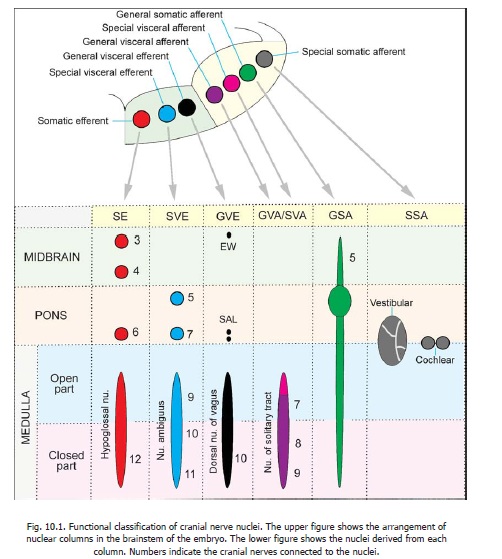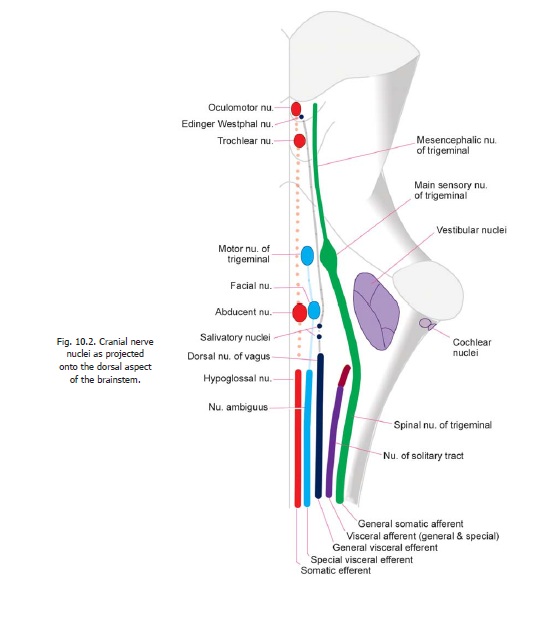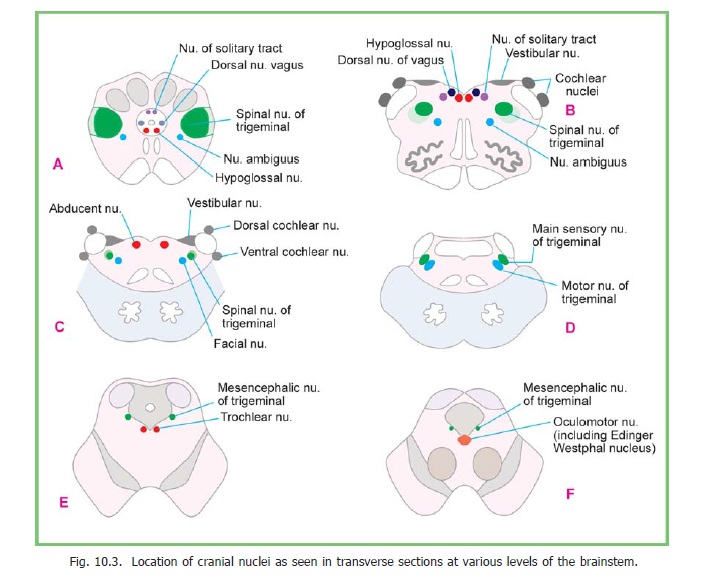Chapter: Human Neuroanatomy(Fundamental and Clinical): Cranial Nerve Nuclei
General and Special Visceral Afferent Nuclei - Cranial Nerve Nuclei
General and Special Visceral Afferent Nuclei
Both these columns are represented by the nucleus of the solitary tract, present in the medulla (Figs. 10.1, 10.2). Like other cranial nerve nuclei of the medulla, the cells of this nucleus form an elongated column lying deep in the reticular formation. Its upper part lies ventrolateral to the dorsal nucleus of the vagus (Fig. 10.3B). When traced downwards it extends into the closed part of the medulla: here it lies dorsomedial to the vagal nucleus (Fig. 10.3A). The lower ends of the nuclei of the two sides fuse to form thecommissural nucleus of the vagus. The nucleus solitarius receives fibres carrying general visceral sensations through the vagus and glossopharyngeal nerves. Through these afferents, and through connections with the reticular formation, the nucleus plays an important role in reflex control of respiratory and cardiovascular functions.
Fibres of taste (SVA) carried by the facial, glossopharyngeal and vagus nerves end in the upper part of the nucleus of the solitary tract which is sometimes called the gustatory nucleus.
According to some authorities some general visceral afferent fibres end in the dorsal vagal nucleus.



Related Topics